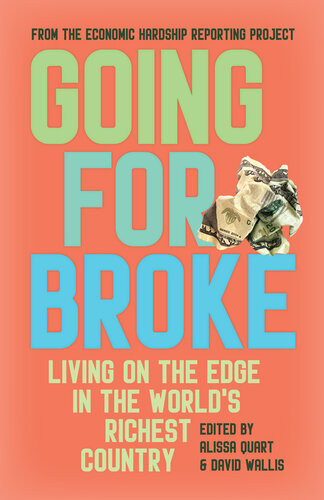

Most ebook files are in PDF format, so you can easily read them using various software such as Foxit Reader or directly on the Google Chrome browser.
Some ebook files are released by publishers in other formats such as .awz, .mobi, .epub, .fb2, etc. You may need to install specific software to read these formats on mobile/PC, such as Calibre.
Please read the tutorial at this link: https://ebookbell.com/faq
We offer FREE conversion to the popular formats you request; however, this may take some time. Therefore, right after payment, please email us, and we will try to provide the service as quickly as possible.
For some exceptional file formats or broken links (if any), please refrain from opening any disputes. Instead, email us first, and we will try to assist within a maximum of 6 hours.
EbookBell Team

5.0
20 reviewsA collection of compelling, hard-hitting first-person essays, poems, and photos that expose what our punitive social systems do to so many Americans.
Going for Broke, edited by Alissa Quart, Executive Director of the Economic Hardship Reporting Project, and David Wallis, former Managing Director of EHRP, gives voice to a range of gifted writers for whom "economic precarity" is more than just another assignment. All illustrate what the late Barbara Ehrenreich, who conceived of EHRP, once described as "the real face of journalism today: not million dollar-a-year anchorpersons, but low-wage workers and downwardly spiraling professionals."
One essayist and grocery store worker describes what it is like to be an “essential worker” during the pandemic; another reporter and military veteran details his experience with homelessness and what would have actually helped him at the time. These dozens of fierce and sometimes darkly funny pieces reflect the larger systems that have made writers' bodily experiences, family and home lives, and work far harder than they ought to be.
Featuring introductions by luminaries including Michelle Tea, Keeanga-Yamahtta Taylor, and Astra Taylor, Going for Broke is revelatory. It shows us the costs of income inequality to our bodies and our minds—and demonstrates real ways to change our conditions.